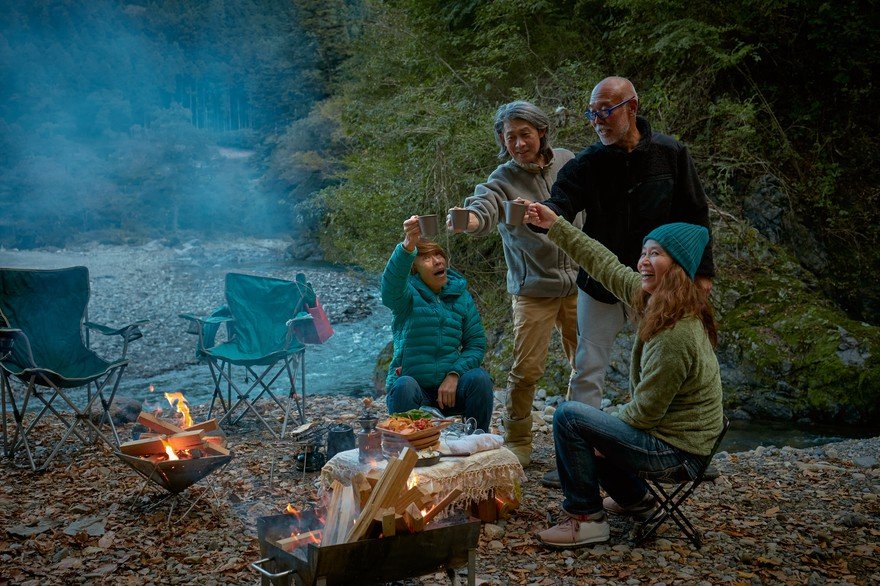
Even before the COVID-19 pandemic began, the National Park Service had been noting a steady increase in the number of camping trips Americans were taking every year. But the pandemic created a surge in interest in camping and other outdoor activities. Younger generations are accounting for much of this growth, and tens of billions of new dollars will be spent on camping equipment annually in the coming years as these young enthusiasts get outfitted for their excursions.
This could be a lucrative niche for investors within the travel and related retail industries. To that end, here are some of the top stocks to consider when investing in the great outdoors.
Investing in top camping stocks in 2024
Investing in top camping stocks in 2024
The primary way to bet on the camping industry is via retailers and manufacturers that sell camping equipment. Mega-retailers such as Walmart (WMT 0.46%) and Amazon (AMZN -2.56%) stake claims to large parts of this consumer spending category. There is the highly correlated RV industry as well, with Camping World (CWH 1.18%) a prominent player as both a recreational vehicle and camping equipment seller.
But for a more focused play on camping, here are six stocks to give a close look at for 2024 and beyond.
| Company | Market Cap | Description |
|---|---|---|
| Dick's Sporting Goods (NYSE:DKS) | $11.37 billion | A top omnichannel retailer for sports and other outdoor equipment. |
| Deckers Outdoor (NYSE:DECK) | $18 billion | A holding company that owns shoe brands UGG, Hoka, Teva, and Sanuk. |
| YETI Holdings (NYSE:YETI) | $4 billion | The bag, cooler, and drinkware maker for outdoors enthusiasts. |
| Columbia Sportswear (NASDAQ:COLM) | $4.7 billion | Outerwear, apparel, accessories, and equipment for adventurous types. |
| Johnson Outdoors (NASDAQ:JOUT) | $501 million | A diversified outdoor equipment and vehicle manufacturer. |
| Big 5 Sporting Goods (NASDAQ:BGFV) | $126.8 million | Small West Coast retailer specializing in sportswear, footwear, and outdoor equipment. |
1. Dick's Sporting Goods
1. Dick's Sporting Goods
Few retailers got as big a boost as Dick's Sporting Goods from a resurgence in outdoor travel and experiences. A mid-sized retailer working hard at updating its operations for the digital age leading up to 2020, the company's work at reaching consumers via its stores and website paid off big when the pandemic struck and consumers began updating their gear for outdoor adventures. Dick's went from struggling stock to high-flyer, returning almost 200% from a combination of share price appreciation and its dividend payment in 2020 and 2021.
Dick's has a wide lineup of apparel and equipment for all sorts of outdoor activities, and it's increasing its digital sales at a steady pace as consumers get more accustomed to making purchases online. The company's extensive store base gives it a leg up in this department, doubling as a fulfillment center (including same-day order store pickup) and a place where customers can make returns. With millions of new athletes created in the past couple of years, Dick's thinks it can outpace the otherwise pedestrian single-digit percentage expected growth in sporting goods sales in the years ahead with an omnichannel selling strategy.
2. Deckers Outdoor
2. Deckers Outdoor
You may not want to go hiking in a pair of UGG boots, but for those who enjoy "glamping" (a portmanteau word that combines "glamorous" and "camping"), UGG might be more fashion statement than outdoor footwear staple. For hitting the trails and enduring long excursions, there's the running and hiking shoe company Hoka. Both brands are under the purview of parent organization Deckers Outdoor.
Like other apparel and accessory companies, Deckers has been a prime beneficiary of the recent uptick in outdoor activity. Throw in its sandals and footwear brands Teva and Sanuk, and Deckers has a shoe for nearly every trip and adventure imaginable. It's unclear how long its double-digit percentage sales growth will continue, but Deckers is building a small shoe empire worth keeping tabs on.
Same-Store Sales
3. YETI Holdings
3. YETI Holdings
YETI was an impressive growth story after its successful IPO a few years ago. The stock was on a tear and had doubled in value from its public debut in late 2018 through the end of 2019. While the pandemic caused a brief hiccup for the company, sales have soared even higher after campers began outfitting themselves with new bags, coolers, and travel drinkware.
Part of YETI's strength isn't just its products; it's also the business model. More than half of revenue comes from direct-to-consumer channels such as an order placed directly on its own website and shipped to the customer from YETI. It's an efficient manufacturing-retailing model that gives YETI an above-average operating profit margin (at 20% on an adjusted basis) compared to a traditional retailing model, which tends to be in the single-digit percentage operating profit range. More than just a top outdoor equipment maker, YETI stock could be a solid investment in a long-term consumer brand growth story.
4. Columbia Sportswear
4. Columbia Sportswear
The apparel industry was deeply affected by COVID-19 in 2020. Stuck at home for part of the year, new clothes ranked low on many household shopping lists, and it took time for consumers to begin updating their wardrobes again. Outerwear, outdoor apparel, and equipment company Columbia Sportswear wasn't exempted from the pain.
The company is making a solid comeback in 2021, though, and is approaching its 2019 record high for sales. It's not just that clothing is one of the hottest themes in the retail industry right now. Columbia (along with its subsidiary brands Mountain Hardwear, SOREL, and prAna) provides comfortable gear tailored for the adventurous spirit, an in-demand category of threads for campers and vacationers as travel starts to make a comeback. Columbia is riding the wave, and its long-term growth and income story is back on track.
5. Johnson Outdoors
5. Johnson Outdoors
Camping and outdoor activities are all about the experience, and quality experiences are a top theme in travel for consumers. The right equipment can be the key to an enjoyable experience. Enter Johnson Outdoors. The company operates in four segments — fishing, diving, camping, and watercraft — and is responsible for brands such as Eureka!, Jetboil, Scubapro, Humminbird, and Ocean Kayak.
This is a small cap stock, so its share price can exhibit extreme volatility. Nevertheless, Johnson Outdoors is growing at a brisk pace as various camping and watersport activities gain traction. As it has grown over the years, this manufacturer has also become quite profitable. This is a top small-growth company to consider within the camping stock universe.
6. Big 5 Sporting Goods
6. Big 5 Sporting Goods
Big 5 is by far the smallest company on this list and is a possible business recovery play. The West Coast-based sporting goods retailer struggled to kindle any growth against its e-commerce peers in the years leading up to 2020, but the pandemic and a surge in camping and sports interests threw Big 5 a lifeline. Revenue quickly surged to all-time highs, and the retailer is suddenly very profitable.
The question facing Big 5 now is whether it can hold onto its new customer base and profitability as the pandemic gradually eases. But one thing's for sure: Big 5 is in better shape than ever. Don't count this small sporting goods business out.
Related investing topics
Camping is a travel favorite
While consumer trends are always shifting, a new generation of travelers seems more interested in exploring the outdoors than any previous group. Camping is a favorite vacation activity, and investing in equipment manufacturing and retail could pay off in the next few years.
However, as many of the stocks on this list are small, bear in mind that prices can be highly volatile. Remember to invest in companies you believe have an enduring advantage in the camping and outdoors industry, and stay invested for the long haul.










